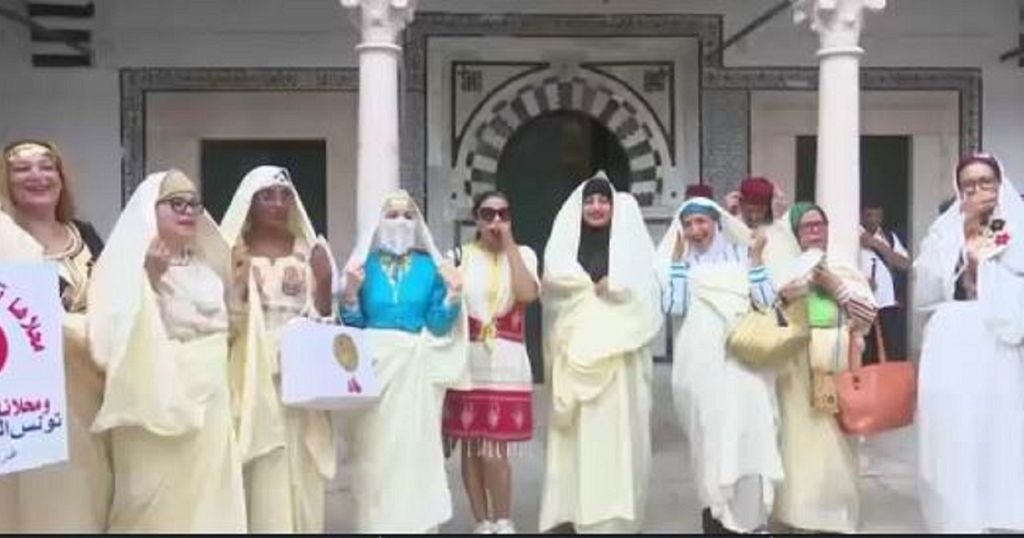Women in Tunisia celebrated National Women’s Day this week with a vibrant procession through the historic heart of Tunis, spotlighting the enduring cultural and symbolic significance of the traditional sefsari garment. Organized by the Turathna Association, the annual parade—now in its tenth year—saw participants donning the flowing white tunics as they wound through the medina’s bustling markets, past the Zitouna Mosque, and concluded at the Municipal Theatre. The event honored the 66th anniversary of Tunisia’s landmark Personal Status Code of 1956, which outlawed polygamy, established gender equality in family law, and guaranteed women’s access to education.
Dubbed “The Sefsari Outing of Free Women,” the celebration intertwined cultural pride with reflections on historical resistance. Mehdi Belhaj, president of the Turathna Association, emphasized that the sefsari—a lightweight, full-body veil—symbolizes Tunisian women’s dual embrace of heritage and progress. “This garment embodies our roots, but it’s also a canvas for storytelling,” he said.
Participants highlighted the sefsari’s layered history. One marcher noted its role during France’s colonial rule, when women covertly carried weapons beneath the fabric to resist occupation. “Our grandmothers turned this symbol of modesty into a tool of liberation,” she said. Though less commonly worn in daily life today, the sefsari remains a fixture at weddings and religious ceremonies, its preservation viewed as vital to national identity.
The procession doubled as a tribute to women’s evolving societal roles. Attendees stressed that retaining cultural symbols need not conflict with modernity. “Tunisian women are doctors, engineers, and artists—we’ve entered every field,” said one participant. “But honoring traditions like this reminds us where we’ve come from.”
Organizers framed the event as part of a broader effort to safeguard both tangible heritage—like architecture—and intangible practices, such as traditional dress. Over the past decade, the parade has grown into a platform advocating for women’s agency, linking historical milestones to present-day achievements. While Tunisia is often hailed as a regional leader in women’s rights, participants acknowledged ongoing challenges, from economic disparities to conservative pushback against reforms.
As the marchers dispersed, the message echoed by organizers and attendees alike was clear: the sefsari is more than fabric—it’s a testament to resilience, a bridge between generations, and a reminder that progress thrives when rooted in cultural pride.
